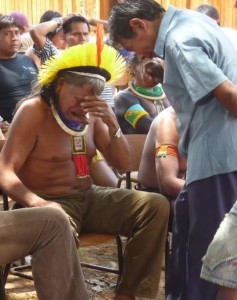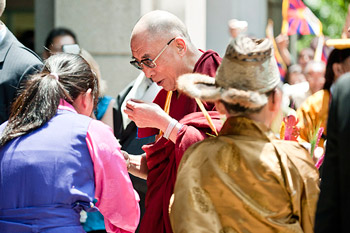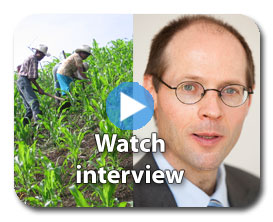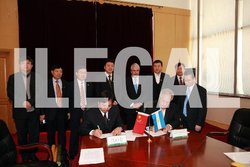Posts by Melanie
A Call for Renewable Energy in Brazil
http://amazonwatch.org/belo-monte-dam
http://plattformbelomonte.blogspot.com
UPDATE Mo, 7.11.2011, 19:33 For immediate release
Media contacts:
Zachary Hurwitz, International Rivers +1 510 848 1155 x 303 zachary@internationalrivers.org
Oriana Rey Tanaka, Amigos da Terra-Amazônia, Brazil orianarey@amazonia.org.br
Belo Monte Dam Does Not Meet Sustainability Criteria of World’s Private Banks, Say Rights Groups
The controversial Belo Monte Dam, slated for construction in Brazil’s Amazon region, does not meet the standards of an international framework used by the world’s largest private banks to evaluate sustainability, say human rights groups in Brazil.
In a letter sent to Itaú, Banco do Brasil, Bradesco, Santander, and Caixa Econômica Federal, 150 Brazilian social and environmental organizations warned that Belo Monte developer Norte Energia, S.A. (NESA) has not complied with the Equator Principles, a set of voluntary standards created in 2003 that aid private financiers in assessing and managing social and environmental risk in project finance. As signatories of the Equator Principles, the five banks commit to not providing loans to projects where the borrower will not or is unable to comply with the Principles‘ respective social and environmental policies and procedures.
The five banks have been mentioned by the Brazilian government as possible co-financiers of the Belo Monte Dam, and at least one, Banco do Brasil, has been mentioned as the top-runner to co-finance nearly $20 billion reais that would be disbursed by the Brazilian National Development Bank (BNDES) to NESA. The Brazilian civil society groups argue that BNDES is using tax-payer funds to finance what is ultimately a costly boondoggle. In October, Credit Suisse reduced its outlook for Cemig and Light, two Brazilian electric utilities that joined NESA, stating that the project’s rate of return is far below government estimates.
“The legal violations that have accumulated throughout the planning process of the Belo Monte Dam clearly illustrate that the project does not live up to the standards of the Equator Principles. We recommend that Equator Principles banks stay away from co-financing Belo Monte, because the reputational risks associated with the project are very large,” said Zachary Hurwitz, Policy Coordinator at International Rivers, which published a risk report with Amigos da Terra-Amazônia Brasileira in early 2011 detailing the project’s history.
In order for any of the five private banks to co-finance a loan for the Belo Monte Dam, they would have to illustrate that NESA has complied with the guidelines‘ ten principles. For example, Principle 5 requires borrowers to “consult with project affected communities in a structured and culturally appropriate manner,” and to “ensure their free, prior and informed consultation and facilitate their informed participation as a means to establish whether a project has adequately incorporated affected communities’ concerns.”
However, recent evidence suggests that NESA, a project consortium composed of nearly 75% state-owned enterprises, did not hold free, prior, and informed consultations with affected indigenous communities.
In a hearing of Brazil’s Regional Federal Tribunal, judge Selene Maria de Almeida decided that three tribes who live on a 100km stretch of the Xingu River that would be dried out because of the dam— the Juruna, the Arara, and the Xikrín Kayapó— had not been properly consulted. Environmental agency IBAMA and state electric utility Eletrobras, the largest holder in NESA, only began studying the project’s impacts on tribes in 2008, three years after the Brazilian Congress had approved the project. The Brazilian Constitution mandates that developers must hold proper consultations before a development project that impacts indigenous people is approved by the Brazilian Congress. If de Almeida’s decision is upheld in court, Belo Monte would be suspended until proper consultations were held.
The warning letter also argues that the developer has not complied with Principle 4 of the Equator Principles, which requires the borrower to create an Action Plan that “implements mitigation measures, corrective actions and monitoring measures to manage the impacts and risks” in compliance with host country social and environmental regulations. An injunction brought by Carlos Castro Martins at the end of September barred NESA from beginning any work that would interfere with the natural flow of the Xingu river, after it was found that the developer had not properly assessed the risks to local fish stocks, nor planned a program to mitigate the impacts on families who make a living from fishing.
The warning letter also argues that NESA has not complied with Principle 6, which requires the borrower to create a grievance mechanism as a condition of managing the risk of Category A and B projects. The Equator Principles consider Category A projects to have significant risk, while Category B are considered to have limited risk.
The Equator Principles, last revised in 2006, are directly based on the Performance Standards of the International Finance Corporation (IFC), which were revised and strengthened in 2011. The new version of the Performance Standards includes language that protects indigenous peoples‘ right to informed consultation and participation, and, in certain cases, upholds their right to free, prior, and informed consent. The Equator Principles will also be updated in 2012, and are likely to adopt the stronger language.
For more information:
International Rivers
Amigos da Terra – Amazônia Brasileira (Portuguese)
Movimento Xingu Vivo Para Sempre (Portuguese)
More Info: http://en.wikipedia.org/wiki/Equator_Principles
http://nativeamericanheritagemonth.gov/ Native American Heritage Month 2011
Live Webcasts: Kalachakra for World Peace
His Holiness the Dalai Lama is greeted by members of the Tibetan community on his arrival at his hotel in Washington DC on July 5, 2011. Photo/Tenzin Choejor/OHHDL
Venue: Verizon Center, Washington DC, USA
Date: July 6-16, 2011
Duration: 5 webcasts each approximately 2 hours and 30 minutes
Languages: English, Chinese
His Holiness the Dalai Lama will be in Washington DC, USA, for the Kalachakra for World Peace, from July 6-16, 2011. Many of the events will be webcast live in English, Chinese and Russian languages. Please check the times and events as they are subject to change.
All times are Eastern Daylight Time in Washington DC, USA. (To change languages, choose the language in the box at the lower right corner of the player and then click on „USTREAM“)
His Holiness the 14th Dalai Lama and Professor Robert Thurman are both asked „Please explain the significance of the Kalachakra.“ Both the Dalai Lama and Prof. Thurman speak about little known aspects of this Tibetan Buddhist teaching, and how it is meant to positively affect World Peace.
July 6 – Teaching and Birthday Celebrations
His Holiness the Dalai Lama will give a short teaching followed by celebrations in honor of His Holiness’s 76th birthday.
Time: 9:30am-12:00noon
His Holiness the Dalai Lama’s 76th Birthday Celebrations – Celebrations in honor of His Holiness the Dalai Lama’s 76th birthday held in Washington DC, USA, on July 6, 2011.
July 9-11 – Preliminary Teachings
His Holiness will teach in the afternoon for three days on Gyalsey Thokme Sangpo’s „37 Practices of a Bodhisatva (Laklen Sodunma)“ & Kamalashila’s „The Middling States of Meditation (Gomrim Barpa)“.
Teachings times: 1:00pm-4:00pm each day
July 16 – Long Life Empowerment & Long Life Offering to His Holiness
His Holiness the Dalai Lama will confer a Long Life Empowerment followed by a Long Life Offering to His Holiness.
Time: 8:00am-12:00noon
http://dalailama.com/live-webcasts-kalachakra-for-world-peace
Ramkatha Live from New York, USA
The Ramayana (Sanskrit: रामायण, RÄ�mÄ�yaṇa) is an ancient Sanskrit epic. It is ascribed to the Hindu sage Valmiki and forms an important part of the Hindu canon (smṛti), considered to be itihÄ�sa. The Ramayana is one of the two great epics of India, the other being the Mahabharata.] It depicts the duties of relationships, portraying ideal characters like the ideal father, ideal servant, the ideal brother, the ideal wife and the ideal king. HERE
Morari Bapu (Gujarati: મોરારી બાપુ, Hindi: मुरारी बापू; real name Moraridas Prabhudas Hariyani born on September 25, 1946 in Talgajarda is a popular Hindu kathakaar (preacher), who has been giving 9 day-long sermons (kathaas) in both Gujarati and Hindi all over the world—including in India, the United States, the United Kingdom, South Africa, Kenya, Uganda, on a cruise ship in the Mediterranean Sea, and on an airplane travelling the world—since the mid-1970s. To date, he has conducted over 600 kathaas, most of them based on the Ramcharitmanas of Tulsidas and other such works about Rama as well as Gopigeet which has the gopis of Vrindavan singing of the glory of Krishna. HERE
Ramayan and Ram Charit Manas The Ramayana is an epic poem which was first written from memory (smriti) by sage Valmiki in the Sanskrit language. Many years later, Goswami Tulsidas, born in the 16th century, wrote the Ramcharitamanas (a dfferent verson of the Ramayana written in Avadhi Hindi), which is the scripture used as a basis by Morari Bapu in his kathas.
Through Asia, the Ramayana has served not only as poetry, but as the ideal of life and embodiment of principles, as the basis for festivals, plays and rituals, as the foundation for religion, and as an eternal tale of love and duty.
The Ramcharitmanasa is broken up into stanzas called chaupais, passages of which are interposed with dohas or couplets. It is filled with exquisite poetry and consists of seven chapters: Bal Kand, Ayodhya Kand, Aranya Kand, Kiskindha Kand, Sundar Kand, Lanka Kand and Uttar Kand.
All these sections cover the different periods of Lord Rama’s life, taking us right from his boyhood, through his exile and his life in the forest, to the abduction of Sita, the war which follows in Lanka and finally, what happens after the recovery of his wife. Preceding these seven sections, the story of Lord Shiva has also been narrated in the form of a prologue to Ram’s story.
Katha Dates : Saturday July 2nd, 2011 – Sunday July 10th, 2011
http://iiramii.net/ramkatha_schedule_detail_newyork.html
Japan – Nagoya Biodiversity Agreement
A strategic plan for 2010-2020, adopted in Nagoya, Japan, calls on each country to restore at least 15 percent of its degraded zones each year between now and 2015.
The Decade coincides with and supports the implementation of the Strategic Plan for Biodiversity 2011-2020 adopted by the Conference of the Parties at its tenth meeting held in Nagoya, Japan.
Find out more at:
http://www.cbd.int.2011-2020
http://www.facebook.com/UNBiodiversity
http://en.wikipedia.org/wiki/C
Aktion “Tibetkinder” / Tibet Heute
Tibet heute / http://de.wikipedia.org/wiki/Autonomes_Gebiet_Tibet
http://www.xavier.de/microsite/
Tibet umfasste eine Fläche von 2.470.000 km² und war damit siebenmal so groß wie Deutschland. Das ursprüngliche Gebiet Tibets wurde von China in sechs verschiedene politische und administrative Einheiten zerlegt, die untereinander keine direkten politischen und kulturellen Kontakte pflegen dürfen.
Seit 1965 bilden Zentraltibet (Ü-Tsang), West-Tibet (Ngari) und ein Teil Osttibets (Kham) die sogenannte “Autonome Region Tibet”, mit einer Fläche von 1.200.000 km2. Von den früher einmal ca. 6 Millionen tibetischen Einwohnern, blieben für die “Autonome Region Tibet” nur ca. 2,1 Millionen übrig, die einer immer größer werdenden Zahl chinesischer Einwanderer gegenüberstehen. Die Ausgliederung der Provinzen Amdo und Kham, die über die Hälfte der Gesamtgröße Tibets ausmachten, trägt in großem Maße zum Auseinanderfallen der tibetischen Nation und zum Sinisierungsprozess der verschiedenen tibetischen Volksgruppen bei, die in allen Bereichen um ihre Existenz kämpfen müssen.
Seit 1950 starben mehr als 1,2 Millionen Tibeter durch Hunger, Verfolgung, Folter, Hinrichtung und Selbstmord aus Verzweiflung.
Wegen öffentlicher Demonstrationen, bei denen besonders Nonnen und Mönche eine aktive Rolle spielen, und persönlicher Meinungsäußerungen, sind Verhaftungen an der Tagesordnung.
In den Gefängnissen wird mit Elektroschocks, Fast-Ertränken, Aufhängen an Armen und Beinen, fortgesetztem Prügeln und Vergewaltigen von Nonnen mit elektrischen Viehstöcken systematisch gefoltert.
Zwangsabtreibungen bis zur Niederkunft und Sterilisationen an tibetischen Frauen sind üblich.
Durch den von China geförderten Zuzug von Han-Chinesen sind die Tibeter mittlerweile eine Minderheit im eigenen Land, was die fortschreitende Zerstörung der tibetischen Kultur noch mehr beschleunigt. In den alten Grenzen Tibets leben heute neben 6 Mio. Tibetern etwa 8 Mio. Chinesen, die durch wirtschaftliche Verdrängung bei den Tibetern Arbeitslosigkeit verursachen.
Vor und während der Kulturrevolution wurden über 99% der tibetischen Klöster mit ihren Bildungseinrichtungen von den Chinesen systematisch zerstört. Davon wird heute ein kleiner, für Touristen interessanter Teil wieder aufgebaut, ohne aber einen normalen Klosterbetrieb zuzulassen. Klöster und tibetische Pilger werden zu Touristenattraktionen degradiert. Trotz offizieller Religionsfreiheit wird das Lehren der Religion fast völlig unmöglich gemacht.
Die Bodenschätze Tibets (z.B. Uran und Gold) und die ehemaligen riesigen Waldbestände werden rücksichtslos geplündert. Die Abholzung von mittlerweile ca. 60% des Waldes hat schon zu erheblichen Überschwemmungskatastrophen in Bangladesh, Indien und auch im Kernland Chinas geführt. Die Veränderungen des Weltklimas sind unabsehbar.
Im Rücken des Himalaya wurde eine gigantische Militärstruktur geschaffen, deren Atomraketen weite Teile Asiens bedrohen. In der Kuku-Nor-Region testen die chinesischen Machthaber ihre Atomwaffen ohne ausreichenden Schutz für die Bevölkerung. Und für viele Länder der Welt bietet China die Endlagerung ihres Atommülls in Tibet an.
Danke, dass SIE sich für die
Aktion “Tibetkinder” interessieren!
„Wir müssen was bewegen, sonst bewegt sich nichts.
Es geht nicht nur um mein Leben, sondern ob es auch für andere ein Leben ist!“
(Dirk Kessler)
http://www.tibetkinder.de/index.php?cat=KAT03
http://www.internationalrivers.org/china
Tibet : Kirti monastery is still under siege
01.07.2011 China Intensifies Restrictions in Tibet – Pictures, Protests Reveal Tense Situation and Heavy Restrictions in Karze
“There were thousands of police and army, in riot gear, in armored trucks patrolling the streets, and on foot in formation patrolling the streets. As well as many standing on street corners, and many more in plain clothes,” the foreigner said.
Tibet News / Information on Human Right and Freedom Repression in Tibet
E: TibetNews@thinktibet.info
www.tibetnews.tibetlist.com
NEWS UPDATE: Article – Relay Hunger Strike to Kirti Gompa 28.04.11
Tibet : Kirti monastery is still under siege – 25.06.11 Dossier Tibet
02.07.2011 Tibetan writer jailed for 4 years in China: group | Reuters http://t.co/kos5XNh
Peaceful Protests Continue in Tibet, Chinese Police Raid Monasteries and Nunneries
Thursday, 22 June 2011 – MORE >>
Food crises: five priorities for the G20
http://www.g20transparency.com/petition.html
STWR_ stwr.org (STWR) http://www.stwr.org/ Great backgrounder for this week’s G20 meeting RT @GdnDevelopment What’s pushing up food prices? | Mark Tran gu.com/p/3v2nb/tf
Oxfam Oxfam International http://www.oxfam.org #Agriculture is on the #G20 agenda – and about time too! http://blogs.oxfam.org/fr/
Hunger is not a natural disaster – it’s a political problem. And G20 leaders can and must act to end this scandal.
In the fight to address global food crises, will the French presidency at the G20 summit succeed where others have failed? On the eve of the G20 agriculture summit on 22-23 June, we urgently need to adopt an ambitious action plan. G20 leaders have a decisive role to play in Paris: they must tackle the problems in the food system.
It will take courage from G20 leaders to put the global food system back on track. They will have to break the „myth“ of hunger as being reducible to a technical issue or to a failure of food systems to produce sufficient volumes. The French presidency appears determined to act decisively on the issue of speculation on the agricultural commodities market. But beyond that, the G20 members remain deeply divided over agricultural policy for the 21st century. The outcome of this debate will have real consequences for all humanity.
Five priorities may give this G20 summit a vital role in improving long-term global food security. As the UN special rapporteur on the right to food, I call upon G20 leaders to endorse the following priorities, and act upon them:
Food crises: five priorities for the G20 | Olivier De Schutter http://t.co/jNdEDvd via @guardian
Report: Eco-Farming Can Feed the World
Post-2011-03-21-DeSchutterNEW: Check out this short video featuring a CBC interview with Olivier de Schutter (UN Special Rapporteur on the Right to Food) discussing the merits of eco-agriculture.
This report – Agro-ecology and the Right to Food – calls for a fundamental shift towards agro-ecology as a way for countries to feed themselves while addressing climate and poverty challenges.
Special Rapporteur on the right to food
http://www2.ohchr.org/english/issues/food/index.htm
United Nations Millennium Campaign
http://www.facebook.com/mcampaign
http://www.sourcewatch.org/Financial Crisis
http://www.sourcewatch.org/Real Economy Project
Press Conference on Landgrabbing Argentina
Sign the Dakar appeal against land grabbing!!
The right to food, and its variations, is a human right derived from the International Covenant on Economic, Social and Cultural Rights (ICESCR). The UN Special Rapporteur on the right to food www.srfood.org , www.righttofood.org in 2002 defined it as follows: HERE
THE OAKLAND INSTITUTE BREAKING NEWS – Investor land deals exploiting Africa, report alleges | Energy & Oil | Reuters Refugees displaced by investors. $2 per hectare land deals cited. Biofuel production at expense of food.
http://af.reuters.com/article/energyOilNews
This coverage highlights how a US investor, AgriSol, has crafted a deal with the Tanzanian government that will displace 160,000 Burundian refugees who have been farming the land since 1972. The refugees have been working to gain Tanzanian citizenship, and are now being coerced into leaving the land in question if they want citizenship, according to our report.
These large scale investments in land in Africa are resulting in food insecurity, the displacement of small farmers, conflict, environmental devastation, water loss, and the further impoverishment and political instability of African nations. Please read this investigative series of reports and post widely.
https://www.facebook.com/oak.institute http://allafrica.com/tanzania
http://media.oaklandinstitute.org/special-investigation-understanding-land-investment-deals-africa
PRESS CONFERENCE ON LANDGRABBING IN PATAGONIA, ARGENTINA
The Permanent Forum for Life Dignity / Food Sovereignty Group, and the Grupo de Reflexión Rural (www.grr.org.ar), along with unions, student and teachers associations and many social organizations and political forces, convoke national and international journalists, social organizations, friends, colleagues and the general public to a Press Conference to be held on Friday June 10th, at 10:00 am at the Microcinema of the Atlantic Regional University Center of the National University of the Comahue Region of Patagonia, located in Ayacucho and Monsignor Esandi Boulevard, Viedma, Rio Negro Province, Argentina.
We want to expose and make known the actions we carry out against the traitorous agreement signed by the Governor of the Province of Rio Negro, Miguel Angel Saiz with the Chinese Heilongjiang Beidahuang State Farms and Business Trade Group CO., LTD . According to published information, this “agreement” threatens to hand over 320.000 hectares of arable land of Patagonia to this corporation for indiscriminate exploitation, including public infrastructure, irrigation systems, huge direct and indirect subsidies and fiscal favors, violating our National Food Sovereignty with multiple social, environmental, economic and cultural consequences.
Contact: Soberania Alimentaria nisojanichina@yahoo.com.ar
FINAL CALL FOR ORGANISATIONS TO SIGN THE DAKAR APPEAL AGAINST LAND GRABBING!!
During the > World Social Forum in Dakar, Senegal, in February 2011, social movements and organisations released a collective appeal against land grabbing. Over 150 organisations have already signed. If your organisation would also like to support this appeal, please do so before 15 June 2011.
The Dakar Appeal, together with the names of organisations endorsing it, will be presented during the mobilizations against the G20 Agriculture Ministers‘ meeting in Paris on 22-23 June.
Read and sign the petition here: http://www.petitiononline.com/dakar/petition.html
FINAL CALL FOR ORGANISATIONS TO SIGN THE DAKAR APPEAL AGAINST LAND GRABBING!!
Organisational signatures so far: http://www.grain.org/
Indigenous Food Festival Chiang Mai, Thailand
SAVING BIODIVERSITY & RIGHT TO FOOD: www.srfood.org www.cbd.int/cop10
NEW Campaign against seeds privatization www.foodsov.org/html/takeaction.htm
IKAP THAILAND NETWORK www.ikap-mmsea.org: Indigenous Food Festival Chiang Mai, Thailand
Documents developed by this network are: National Laws on Indigenous Knowledge and Biodiversity and Rotational Farming.








